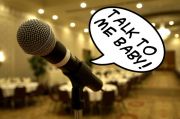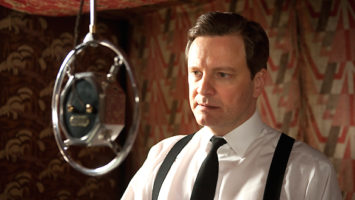 Recently I have become interested in video editing. I edit mainly videos about my travels, distant and not so far. And then gradually came to the desire to do voice acting for the video. Not a song in the background, but the text, the voice. The question is new to me and in some places frightening, and therefore especially interesting. A kind of forbidden fruit.In short, I ate this apple :) And now I can share my impressions and tips on reading the text for the video.So, I was faced with the task of recording a voice-over text for an already edited video about a campaign in the Crimea. The duration of the video is only 3 minutes. How long do you think it took to record the voice acting? Three hours, three o’clock!
Recently I have become interested in video editing. I edit mainly videos about my travels, distant and not so far. And then gradually came to the desire to do voice acting for the video. Not a song in the background, but the text, the voice. The question is new to me and in some places frightening, and therefore especially interesting. A kind of forbidden fruit.In short, I ate this apple :) And now I can share my impressions and tips on reading the text for the video.So, I was faced with the task of recording a voice-over text for an already edited video about a campaign in the Crimea. The duration of the video is only 3 minutes. How long do you think it took to record the voice acting? Three hours, three o’clock!
Preparing the studio.
Three hours is just the time spent on the recording itself. Before that, I was looking for and installing an audio editing program, preparing a microphone and a studio. Under the phrase “prepare the microphone” is the manufacture of the simplest pop filter. This filter is needed to protect the microphone from explosive sounds like “b” and “p”. From them the recording level goes off scale and it seems that someone spits directly into your ears (I worked with headphones).With the preparation of a home studio, everything is even easier – you just had to sit down and wait until the house becomes quiet (the child falls asleep, work in the kitchen ends, the neighbors’ perforator breaks). I didn’t hang carpets on the walls (for echo cancellation), I didn’t cover myself with a blanket (there are such recommendations).
Creating text for voice acting.
The very first real experiment with voice acting showed that the voice cannot keep up with the events on the screen. I try to make video fragments (scenes) for editing no longer than 6 seconds. During this time, you can’t even say two normal sentences, but there must also be pauses between different plots.As a result, the original plan to comment on EVERYTHING happening on the screen had to be abandoned in favor of a more realistic scheme. There are key scenes in which the video and text become absolutely synchronous for a moment and talk about the same thing. Then the image is carried away further, and the voice continues lengthy reasoning only remotely related to the “picture”.The next discovery was that at my level of speaking, there can be no question (:-) of improvisation. The only way to make any progress in the recording is to read the finished text. Otherwise, you will have to cut out pauses and lowings for a long and tedious time, rewrite individual words dozens of times, in order to eventually rewrite the entire sentence as a whole.At first, I tried to sculpt a phrase from separately recorded words. But at the same time it is extremely difficult to coordinate intonations. Yes, and the level of recording is constantly changing. In short, the easiest way to fix a mistake is to rewrite the entire sentence.The final scheme of work on voice acting was as follows.
- the duration of the fragment is determined (10-30 seconds).
- text is being drafted
- a test recording is made to evaluate the actual time of the text
- corrections are being made, the full version of the text is being written
- text recitation (clean recording) in the audio editor
- adding sound in a video editor, analyzing time discrepancies
- editing the sound (cutting pauses and throwing out unnecessary) to achieve the desired length
As a result, the text is extremely far from the original intention (as it should be for any works based on real events). You don’t say what you want to say, but what you can.
Shoals and similar difficulties.
When you listen to your voice for a long time and carefully in the recording, you can:
- finally get used to the unusualness of its sound
- notice a lot of mistakes and shortcomings
The most noticeable shortcoming was a strong drop in volume at the end of each phrase. I start loudly and clearly, but the air and patience quickly end and the speech “goes out”. This is “cured” by practicing and writing down several sentences at once. Then I relax less between them and don’t let the volume drop.Some seemingly innocent words (for example, “tourist”) in the recording turn out to be difficult to pronounce. No, it’s easy to say that they are, but the result is worthless. Hissing sounds often sound strange and ugly. Diction needs to be worked on. For some reason, the change in the timbre of the voice was very noticeable during the final compression of the video. Although I chose the maximum (for mp3 format) sound quality, the frequency response has changed dramatically.P.S. Shortly before we started working on the voice acting, we watched the film “The King’s Speech”. Needless to say, I very much empathized with the poor monarch. I also stutter a little when I’m nervous. And I, too, had to speak into the ruthless muzzle of the microphone. But the king and I (a cool phrase, isn’t it?) – the guys are not a blunder, we coped with the task.Okay, enough talking, it’s time to show you the result of my efforts:
For some reason, the change in the timbre of the voice was very noticeable during the final compression of the video. Although I chose the maximum (for mp3 format) sound quality, the frequency response has changed dramatically.P.S. Shortly before we started working on the voice acting, we watched the film “The King’s Speech”. Needless to say, I very much empathized with the poor monarch. I also stutter a little when I’m nervous. And I, too, had to speak into the ruthless muzzle of the microphone. But the king and I (a cool phrase, isn’t it?) – the guys are not a blunder, we coped with the task.Okay, enough talking, it’s time to show you the result of my efforts:
